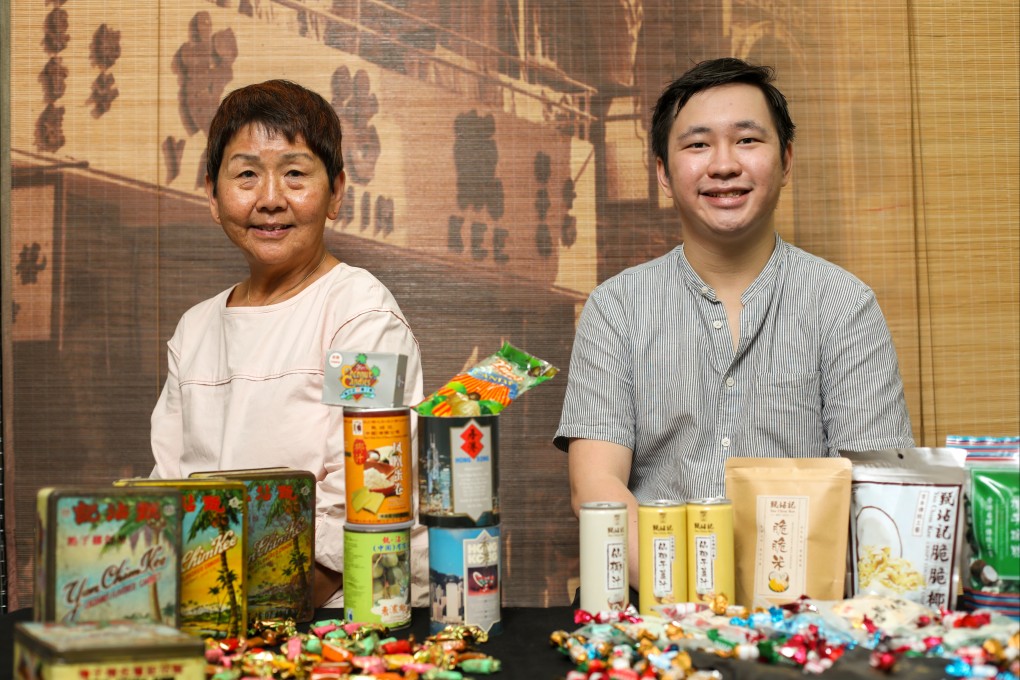If it ain’t broke, don’t fix it: how staying original has helped Hong Kong coconut sweet brand Yan Chim Kee survive for over a century
- Yan Chim Kee started out in 1915 as a street-side operation selling home-made coconut sweets, and became a household name in Hong Kong and beyond
- Members of the third and fourth generation of the family that founded it reflect on its rise, fall and revival, and the the secret to its enduring success

If it ain’t broke, don’t fix it. That’s Adrian Yan Ka-chun’s approach to preserving the 107-year-old coconut candy recipe passed down through his family for generations. After all, this is what has made Yan Chim Kee a household name in Hong Kong and beyond.
Adrian’s great grandfather Yan Lun-lap founded the Yan Chim Kee confectionery company in 1915, after finding success selling his home-made sweets – produced from fresh coconuts imported from Malaya (in modern-day Malaysia) – on the street in Caine Road, in Hong Kong Island’s Mid-Levels.
The factory producing the sweet treats was in the building’s basement and – as was the case with many Hong Kong businesses at the time – he and his family lived above the shop on the building’s upper floors.

A diner serving dim sum and other items was later opened in the building, and customers typically followed such savoury dishes with a serving of the family’s home-made coconut or mango ice cream.
